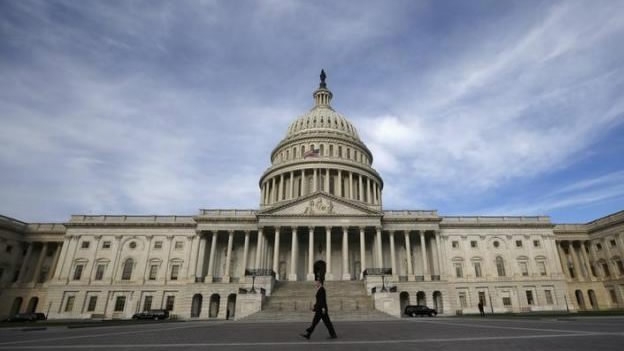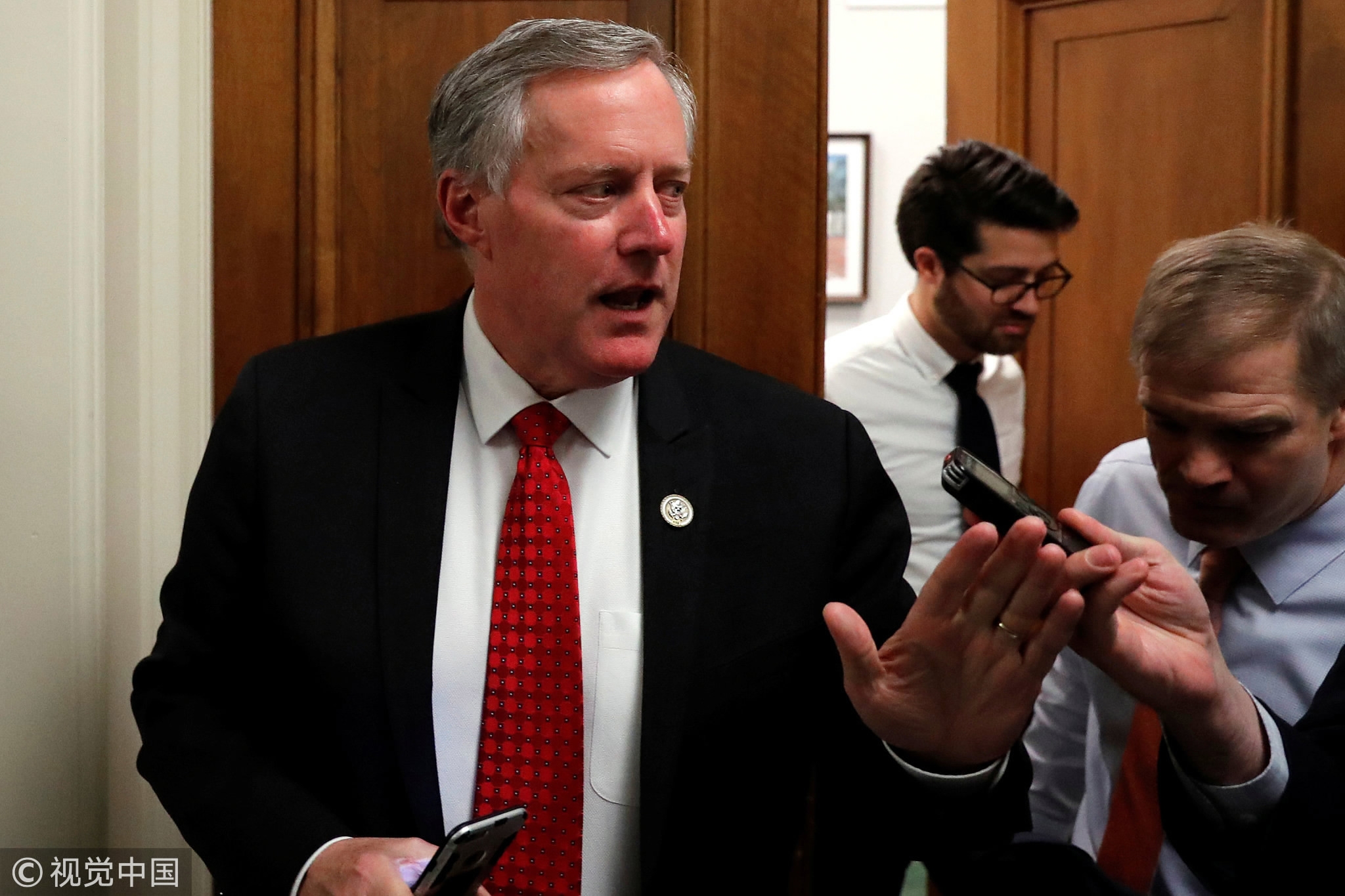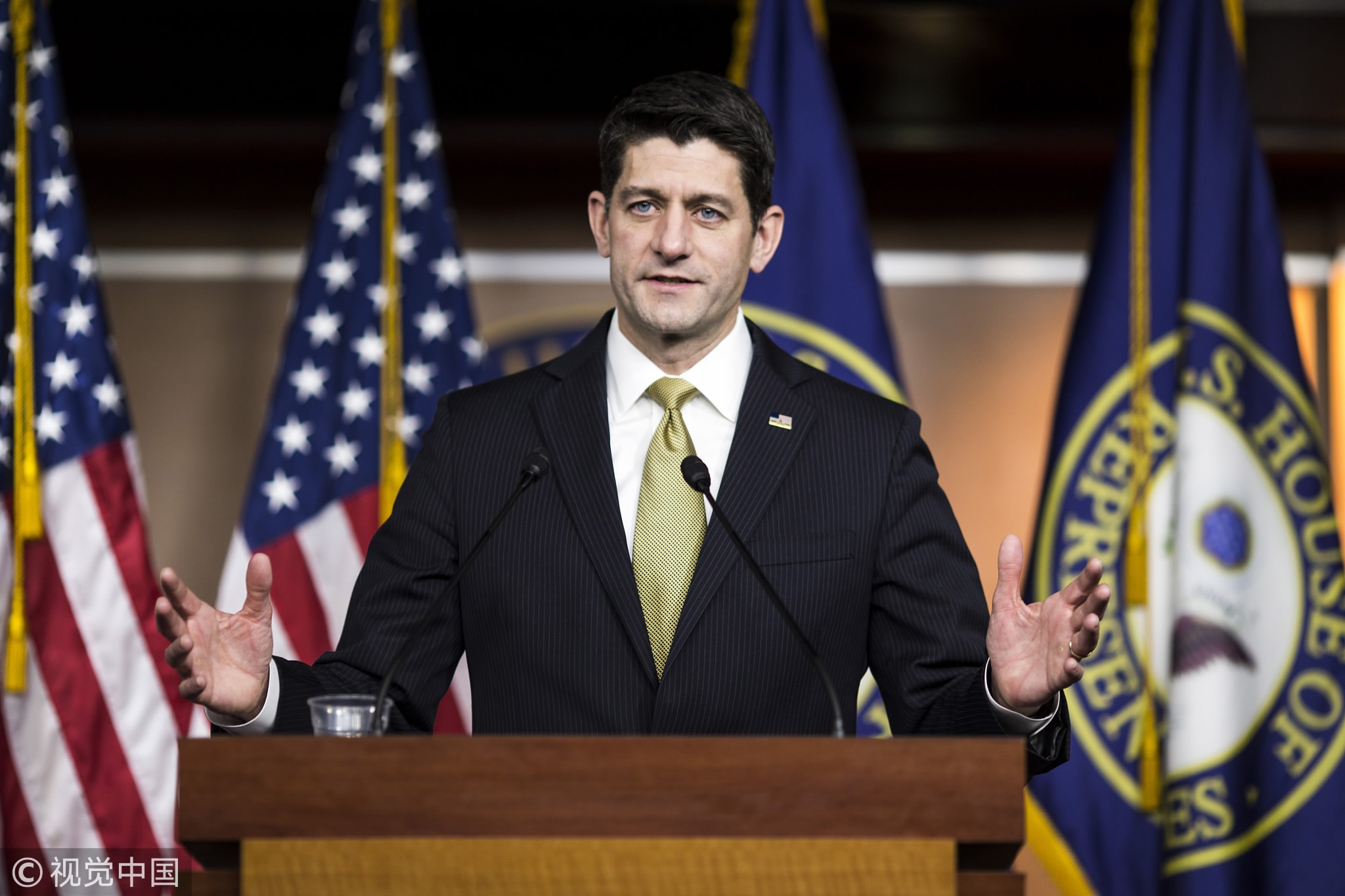
Politics
08:18, 19-Jan-2018
Congress scrambles for votes to avoid government shutdown
CGTN

Congressional Republicans struggled to line up support on Thursday for a short-term extension of government funding that would avert a politically embarrassing shutdown, after President Donald Trump offered mixed signals on the stopgap plan.
Trump complicated the talks by saying a six-year extension of funding for the Children’s Health Insurance Program (CHIP), a Democratic priority, should not be included. The White House later said the president fully backed the proposal pending in the House of Representatives, which includes the insurance plan.

US Representative Mark Meadows (R-NC) and Representative Jim Jordan (R-OH) (R), leaders in the House Freedom Caucus, talk to reporters as they walk between meetings at the US Capitol in Washington, US January 18, 2018. /VCG Photo
US Representative Mark Meadows (R-NC) and Representative Jim Jordan (R-OH) (R), leaders in the House Freedom Caucus, talk to reporters as they walk between meetings at the US Capitol in Washington, US January 18, 2018. /VCG Photo
Republican Representative Mark Meadows, who heads the conservative House Freedom Caucus, told reporters he was in contact with Trump and that they were “trying to make progress so that we have enough votes” for House passage.
But it was not known what possible changes to the bill were being weighed to win more late-hour support among the three-dozen Freedom Caucus members who have the power to potentially kill the bill.
Given Democratic opposition as well, it was unclear on Thursday if Congress could head off a weekend shutdown of the federal government, which is operating on its third temporary funding extension since the 2018 fiscal year began on Oct. 1.
Negotiators have scrambled to reach a budget deal that would include Democratic efforts to protect young immigrants known as “Dreamers,” who were brought to the country illegally as children, and satisfy conservatives who want to raise spending for the military.

US House Speaker Paul Ryan, a Republican from Wisconsin, speaks during a news conference on Capitol Hill in Washington, DC, US, on Thursday, Jan. 18, 2018. /VCG Photo
US House Speaker Paul Ryan, a Republican from Wisconsin, speaks during a news conference on Capitol Hill in Washington, DC, US, on Thursday, Jan. 18, 2018. /VCG Photo
Republican House Speaker Paul Ryan and Republican Senate Majority Leader Mitch McConnell said they were optimistic the House later on Thursday would approve funding until Feb. 16. A procedural House vote to approve the rules for debate passed 226-194.
Getting it through the US Senate could be an even tougher problem. Republicans hold a 51-49 majority there and most legislation, including spending bills or an immigration deal, requires 60 votes to pass the chamber.
Source(s): Reuters

SITEMAP
Copyright © 2018 CGTN. Beijing ICP prepared NO.16065310-3
Copyright © 2018 CGTN. Beijing ICP prepared NO.16065310-3